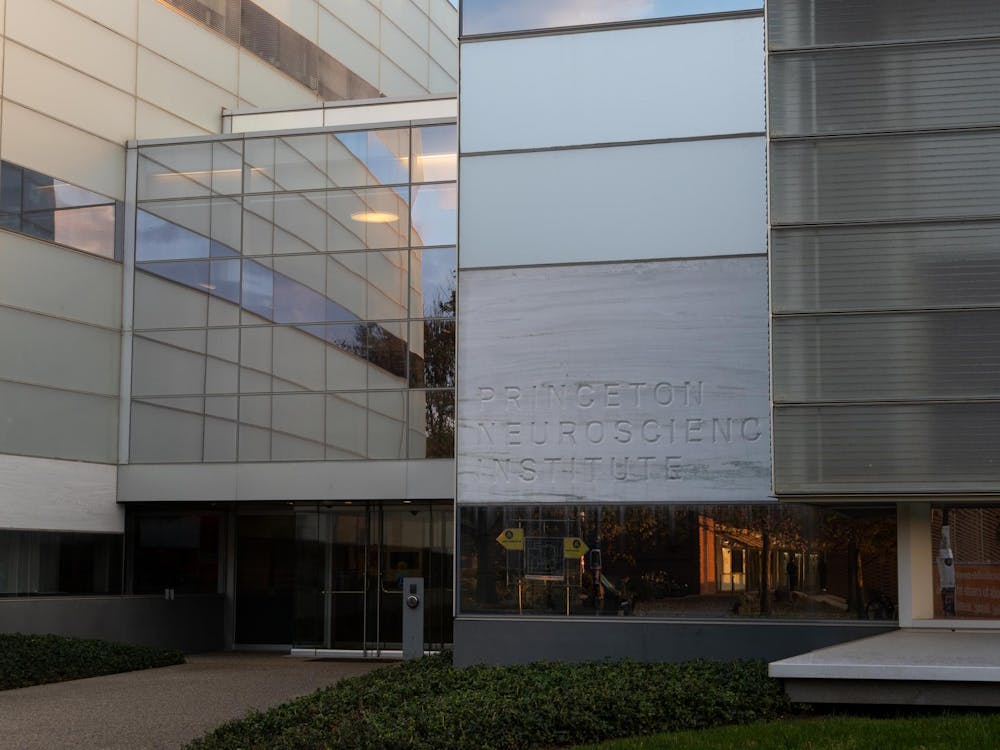Former Princeton lecturer Haleh Esfandiari was allowed to leave Iran and reunite with her family in the United States last week after eight months of detainment in Iran, including four months of solitary confinement in the country's notorious Evin prison.
"I'm really disappointed that this happened to me," Esfandiari, who taught Persian language and literature at the University from 1980 to 1994, said at a press conference yesterday. "I don't bear any grudges ... of course there were moments where I was very angry, but I'm back home. I'm back with my family. I'm back at work."
Esfandiari's ordeal began in December when she was visiting her mother in Tehran. While going to the airport to return to the United States, where she has lived for more than 25 years, Esfandiari was robbed at knifepoint by three men who stole both her Iranian and American passports.
When she applied for a replacement passport, Esfandiari found herself in the clutches of Iran's Ministry of Intelligence, which interrogated her repeatedly. She was then arrested in May and accused of endangering Iranian national security. The interrogations continued in prison and focused on the operations of the Woodrow Wilson International Center for Scholars, a Washington think tank where she is director of the Middle East Program.
"I tried to convince them that, you know, the Wilson Center is a transparent institution," she said at the press conference. "Whatever we did is on our website ... you could easily find out about the meetings by reading our website."
Esfandiari was finally issued a new passport on Sept. 1 after being released from Evin prison on a bail of three billion rials — the equivalent of $320,000 — posted Aug. 21. On Sept. 2 she left Iran for Vienna, Austria, and finally returned to her home in Potomac, Md., on Sept. 6.
During the press conference, Esfandiari insisted that the interrogation sessions she endured, where questions and answers were exchanged in writing, were cordial. Since she did not interact with other prisoners, she said she could not describe their treatment, but she herself was treated with "the utmost respect" and was never mentally or physically mistreated.
Though she was held in isolation in a "relatively large room" with windows, Esfandiari said she was eventually allowed access to newspapers and television. She was also allowed to call her mother, though their conversation was limited. She kept a daily routine of rigorous exercise to keep herself mentally and physically healthy.

Now that she is home again, Esfandiari said she plans to continue her work at the Wilson Center, though she may not initially participate in as many meetings about Iran as she once did. She declined to speculate as to whether she will soon return to the country, though she did say she advocates diplomatic interaction between Iran and the West.
"I always have and will advocate talks between governments, be it the Iranian government and the United States or any other government," she said. "I think governments should talk to each other."
Esfandiari's imprisonment provoked widespread calls for her release, including efforts by former students and colleagues at the University. In June, the Near Eastern studies department cosponsored a vigil for Esfandiari and three other Iranian-American civilians detained in Iran.
Four of Esfandiari's former students — Cherrie Daniels '91, Parinaz Vahabzadeh '93, Erin Logan '93 and Jonathan Katz GS '90 — wrote a letter to Iran's Ayatollah Khamenei, which appealed to the religious leader on a humanitarian basis, Daniels said. The document was signed by 36 of Esfandiari's former students, two of whom delivered it by hand to the Iranian committee to the United Nations. President Tilghman also sent a letter to the Iranian ambassador to the United Nations on Esfandiari's behalf.

Esfandiari is "the kind of person Iran should be honoring," Daniels said, noting that her former professor "never once said a negative word about Iran." She added that Esfandiari's classes examined Iranian history, Persian culture and folk tales — "nothing political."
Near Eastern Studies professor Andras Hamori said efforts to help Esfandiari were multi-pronged. "We joined Amnesty International, the Woodrow Wilson Center, and some others in calling attention to Dr. Esfandiari's plight," he said in an email, "and made known that, like these other organizations and institutions, we protested against her imprisonment."
Continuous appeals were made by Wilson Center president Lee Hamilton, members of the U.S. government, the website freehaleh.org and even a number of "Free Haleh" groups on facebook.com.
Though Esfandiari's arrest might seem puzzling, Wilson School and Near Eastern studies professor Robert Finn GS '78, a former U.S. ambassador to Afghanistan, said he believes Tehran had a reason for its actions. The Iranian government goes to the trouble of arresting seemingly apolitical individuals like Esfandiari, he said, because it fears free speech and a plurality of opinions.
"It's a program of social intimidation," he said. "I think they were really afraid that her work was leading towards some kind of 'soft' revolution."
Shortly after Esfandiari's release, another Iranian American held by Iran, radio host Parnaz Azima, also regained her passport. Finn said he is not sure why Iran released them. "I think they decided they made their point," he said. "I don't think they were expecting such a strong reaction from so many."
Finn, who said he is planning to invite Esfandiari to speak at Princeton, said he fears tactics like her arrest and eventual release have made their mark. "They did have their effect," he said. "This kind of intimidation works."
Though happy to be released, Esfandiari said she feels "a great sense of disappointment" that the Iranian government did not appreciate her work. "It's as if all your efforts all these years were ... misunderstood."







